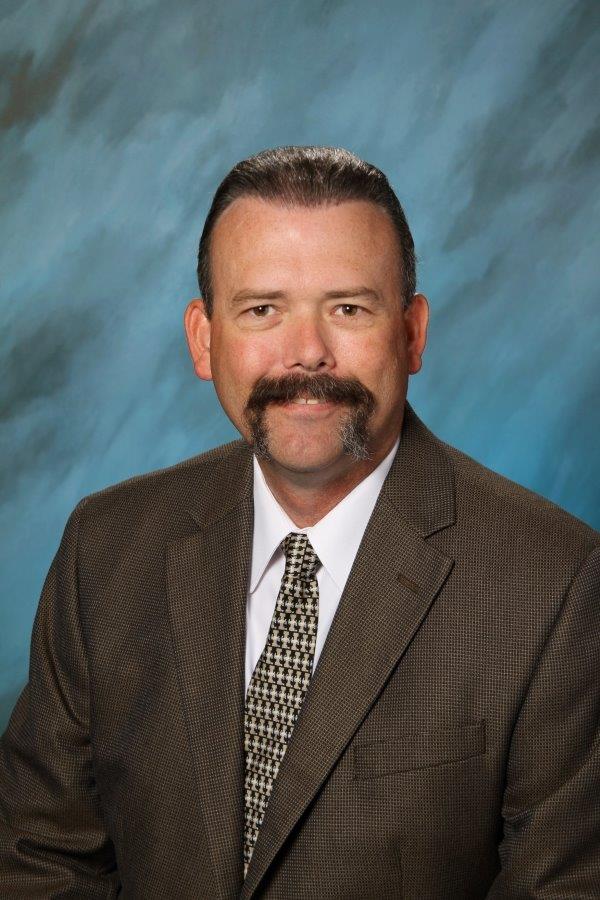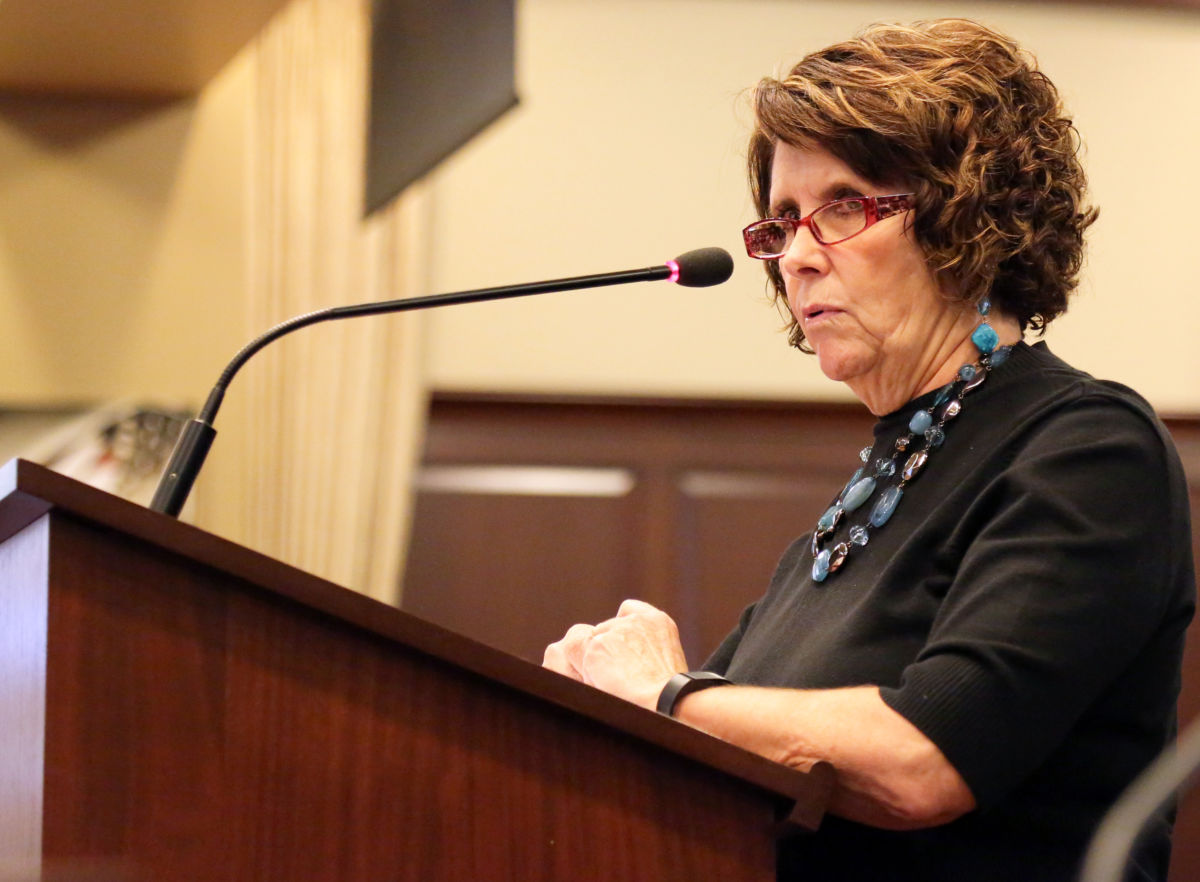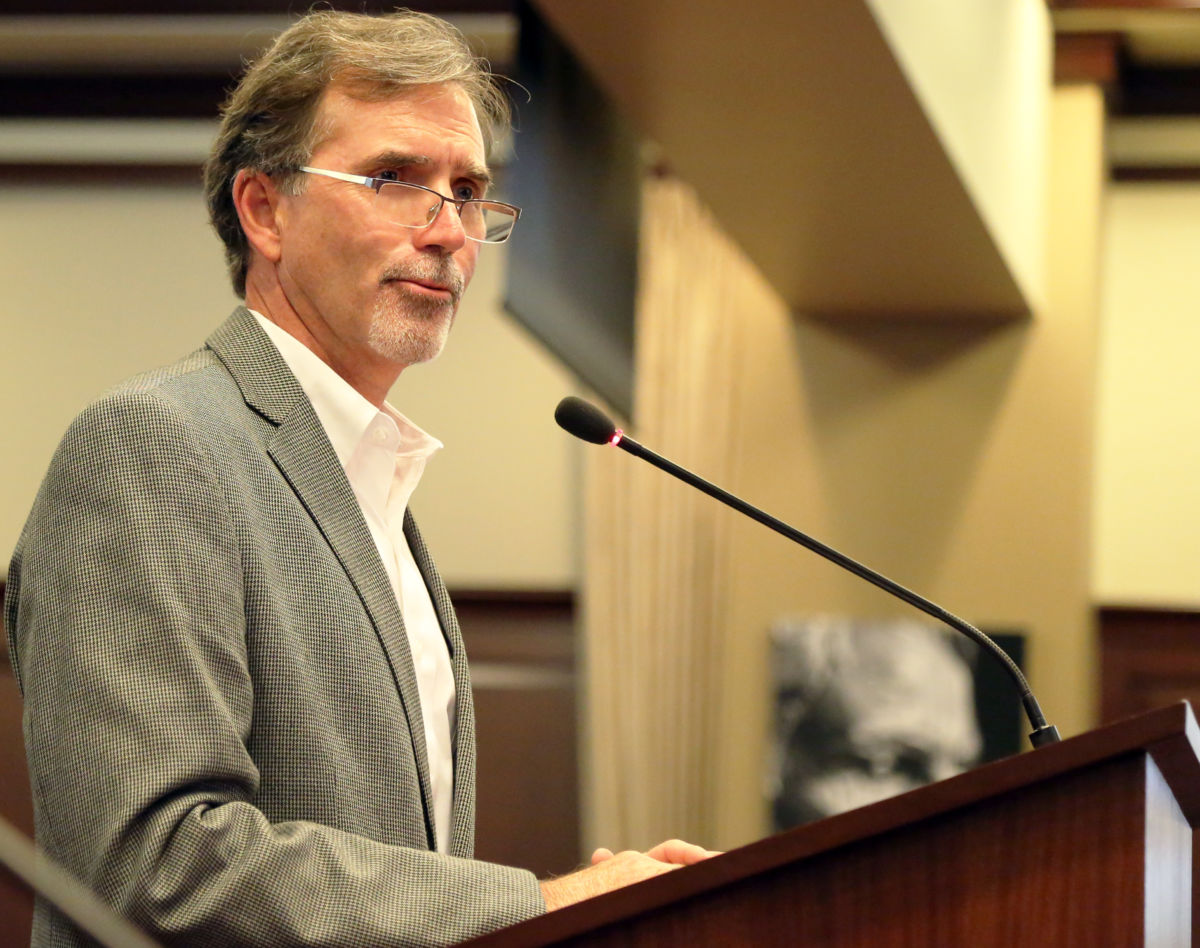(UPDATED, March 3, to clarify timing of Department of Health and Welfare audits.)
Idaho schools are leaving $29 million of federal money on the table every year, according to education lobbyists.
They blame a cumbersome and punitive process for collecting federal Medicaid dollars.
The Department of Health and Welfare wants to help schools navigate the Medicaid bureaucracy and avoid violating the law. But ultimately, Health and Welfare says schools have to adhere to the feds’ rules — and the state agency will audit and fine schools for violations, inadvertent or deliberate.
Education groups and Health and Welfare have different ideas about how to fix the problem — and they’ve taken their respective cases to the Legislature.
Meanwhile, schools work on the front line. Federal law requires schools to provide help for special-needs students. When Medicaid money comes through, it covers 70 percent of the bill. When schools don’t receive these federal dollars, they have to squeeze something else out of local budgets.
‘This isn’t a nice-to-have’
When most people think of Medicaid — a federal-state partnership serving 69 million Americans — they think of traditional medical services, from prescription drugs and dental care to X-rays and hospitalization.
In schools, Medicaid addresses a common theme: helping special-needs students function inside and outside the classroom. The list of services includes occupational and physical therapy, nursing or psychological evaluation.

“This isn’t a nice-to-have,” said Emmett district Superintendent Wayne Rush. “These are essential services.”
And what’s more, the services are required under the federal Individuals with Disabilities Education Act — no matter who winds up paying the bill.
When Medicaid kicks in, Idaho schools get a generous match. But that hinges on two things.
First, the student must qualify under Medicaid’s income guidelines.
Second, the school has to fill out the paperwork properly. That doesn’t always happen.
‘We need the money’
When Kevin Barker became superintendent of his hometown New Plymouth School District two years ago, a crisis was building behind the scenes.
A recent Health and Welfare audit quantified the problem. Over 27 months, two dozen students received help from unqualified speech therapists. On eight occasions, the district billed Medicaid for services, but either the student or the staffer was absent for the session. The district falsified service dates on Medicaid claims — a whopping 107 times.
“(That’s) pretty egregious,” Health and Welfare deputy director Lisa Hettinger said.
In the end, New Plymouth was forced to pay back $158,478.23. That isn’t all federal money. Keep in mind that schools still have to cover 30 percent of Medicaid costs.

Barker is uncomfortable talking about the crisis he inherited. He has told some patrons about the problem — without divulging the numbers. Instead, he tells patrons they could easily buy a house with the money the district had to pay back.
“I don’t want there to be a panic,” he said this week.
Barker didn’t dispute Health and Welfare’s findings, and he says things could have been worse. The state could have fined the district, but Barker thinks he got a break because he had hired a new special education director to rebuild the files from scratch.
None of that diminishes New Plymouth’s bill — the largest a district or charter has incurred since 2014-15. (Click here for a summary of Health and Welfare’s recent school audits. However, audits can go back several years. For example, the Bonneville School District says its 2015 audit covers billings from several previous years.)
There are plenty of ways to run afoul of the rules. The Emmett district filed a Medicaid claim to provide a student with a full-time sign-language interpreter. The claim hit a snag, Rush said, because the student wasn’t receiving any medical services that fall under Medicaid law.
Barker and Rush give Health and Welfare credit for flexibility. The state originally billed Emmett $64,000 for overpayments, but negotiated a $3,712.58 settlement.
Still, districts have to weigh the pros and cons of working through Medicaid — and facing the specter of an audit.
Barker says he’s about ready to go it alone, and use district dollars to help special-needs students. The federal match is hardly worth the price of paperwork.
But the Idaho Falls School District can’t go without $1 million a year in federal Medicaid money, student services director Dan Keck said.
“We need the money,” he said. “That’s a bunch of teachers or a bunch of staff.”
‘They’re not trying to make mistakes’
From July 1, 2009 through Dec. 31, Idaho received $252.6 million of federal money for school-based Medicaid, roughly $33.7 million a year. Overpayments have come in at slightly more than $1.5 million, or $200,000 a year.
Schools and charters can face a double whammy, since Health and Welfare can impose civil penalties for Medicaid violations. For example, the state ordered the Oneida County School District to return $114,431.82 in 2016, and tacked on $5,435.90 in penalties.

These fines are unusual. Idaho School Boards Association executive director Karen Echeverria has heard that Idaho is the only state to impose penalties. Not surprisingly, the threat of fines rankles school officials.
“It just doesn’t make sense to me,” Keck said.
The threat of a fine is the stick. Health and Welfare inserted a $155,200 carrot into its 2017-18 budget request. The agency wants to set up a third-party contract to help schools handle Medicaid paperwork.
Health and Welfare would use the $155,200 to hire two full-time contract monitors. Districts and charters would still pay the contractors for their day-to-day work.
The goal is to help rural districts and small charters. These understaffed schools need help flagging potential pitfalls, and they need it in real time.
“They’re not trying to make mistakes,“ said Health and Welfare’s Hettinger. “A year later, even the best record-keeper will have a tough time reconstructing.”
But will districts seek out the help?
About 50 percent of districts and charters already use third-party contractors to handle Medicaid paperwork, Hettinger said. (New Plymouth is one of them — and even with third-party help, the district got hit with that $158,000 bill from the state.)
Echeverria has doubts about Health and Welfare’s plan.
She questions Hettinger’s estimates, and believes the vast majority of districts and charters already hire Medicaid contractors. Echeverria would rather see the state put money into training, to help the remaining districts and charters work through the process.
And Echeverria isn’t shy about invoking the name of another high-profile contract — the Idaho Education Network broadband debacle.
“I think (lawmakers are) going to be very leery of tagging into a statewide contract that somebody else has issued,” she said.
“… ‘school-based,’ ‘school-based,’ ‘school-based’ …”
Senate Bill 1095 — written by the ISBA and the Idaho Association of School Administrators — is designed to streamline the Medicaid process. The bill still has to go through the Senate Education Committee for a hearing; no date has been announced.
One section of the bill addresses an arcane definition — for the “practitioner of the healing arts.” Under current law, only physicians fall under this definition, so schools need a doctor’s signature to authorize Medicaid services. The ISBA and the IASA want to extend this definition to therapists, psychologists or “any other licensed professional who meets federal Medicaid regulations.”
Health and Welfare opposes SB 1095 — in part, because a school must follow the same federal and state rules as any other Medicaid service provider.
Then there’s the matter of cost, another concern for Health and Welfare.
“We believe (SB 1095) would cause growth in the overall Medicaid budget, increasing Medicaid’s need for state general funds,” Health and Welfare spokeswoman Niki Forbing-Orr said this week.

School groups say their bill would be a boon, not a burden. Citing a study conducted by Rep. Thomas Dayley, R-Boise, they believe the schools are missing out on $29 million per year in federal Medicaid dollars. That forces schools to use state dollars or local property tax dollars to make up the difference.
The federal dollars might be enticing to school administrators. Still, Echeverria and IASA executive director Rob Winslow know they are facing a daunting political obstacle: a Legislature with no appetite for Medicaid expansion.
“That’s why we keep saying, ‘school-based,’ ‘school-based,’ ‘school-based,’” Echeverria said.
